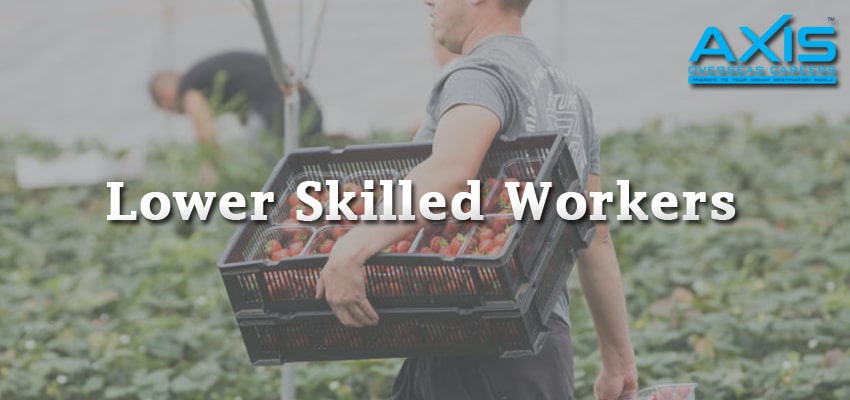
Lower Skilled Workers
As part of the significant changes they are making to the operation of the border and immigration system, they are delivering on their manifesto commitment to reduce overall migration numbers. They will therefore end free movement and not implement a route for lower-skilled workers. They have reached this conclusion based on a number of factors set out in this paper.
UK businesses will need to adapt and adjust to the end of free movement, and they will not seek to recreate the outcomes from free movement within the points-based system. As such, it is important that employers move away from a reliance on the UK immigration system as an alternative to investment in staff retention, productivity, and wider investment in technology and automation.
The points-based system will provide significantly greater flexibility for skilled workers wishing to come to the UK. The requisite salary thresholds and skill levels will provide employers with greater scope to employ skilled migrants from overseas.

Lower Skilled Workers
EU Settlement Scheme (EUSS)
The EU Settlement Scheme (EUSS) is operating effectively. As at the end of January, over 3.2 million applications have been made to the scheme. They have been clear that we want EU citizens already in the UK to stay and to continue to make important contributions to their economy and society. Both pre-settled and settled status under the EUSS allows unrestricted rights to work, providing employers with flexibility to meet labour market demands.
Lower-skilled workers migration
The MAC also noted that even in the current absence of a route for lower-skilled migration from outside the EU, there are estimated to be 170,000 recently arrived non-EU citizens in lower-skilled occupations. This supply, which includes people such as the dependents of skilled migrants, will continue to be available.
They have committed to expanding the pilot scheme for seasonal workers in agriculture which will be quadrupled in size to 10,000 places. The UK also enjoys youth mobility arrangements with eight countries and territories which results in around 20,000 young people coming to the UK each year. Both routes will provide employers with further ongoing flexibility in employing individuals into lower-skilled roles.
Related Topics: Lower Skilled Workers, Highly Skilled Workers, UK immigration point-based system
Comments are closed.